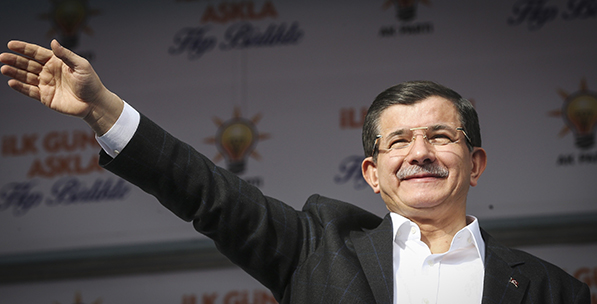With just days left until the Nov. 1 parliamentary election, terrorism remains the number one campaign issue.
The rise to prominence of terrorism on the campaign trail has led to three contradictory results:
(1) Questions about responsibility: The Justice and Development Party (AK Party) attributes the PKK's return to violence on political instability and accuses the opposition of collaborating with certain groups trying to derail Turkey's progress. The opposition parties, in turn, claim that the AK Party leadership sees terrorist attacks as an opportunity to keep the people in line.
(2) Claims of responsibility: At this point, each political party is trying to persuade the voters that their competitors don't prioritize national interests over their own goals. The AK Party's emphasis on unity ("There is no you nor I, there is only Turkey.") is met with the Republican People's Party's (CHP) "Turkey First." Such references to national interests as opposed to party politics represent a thinly-veiled criticism of other parties for not paying due attention to the common good.
(3) Pledges of responsibility: Having failed to form a coalition government by the constitutionally mandated deadline last time around, all of the political parties have pledged to take responsibility and exhaust every option after the Nov. 1 election. At the end of the day, all the players are concerned that the people will hold them accountable for the failed coalition talks. While the AK Party is pushing for a parliamentary majority, the others are trying to avoid being blamed for the deadlock. Having single-handedly blocked the political process over the past few months, the Nationalist Movement Party (MHP) leadership, in particular, is now desperately trying to prevent the AK Party from luring away the Turkish nationalist vote to regain its majority. The Peoples' Democratic Party (HDP), meanwhile, seeks to distance itself from the PKK by paying lip service to the possibility of forming a coalition government with the AK Party. In response to the developments, CHP leaders have announced that they could reconsider their decision to boycott the presidential palace in an effort to break the 30 percent mark.
Should the people expect Turkey's political parties, all of whom are making frequent references to national interests, to help end political polarization and find a middle ground after Sunday's election? Provided that the Russian military presence will only worsen the situation in Syria and create new problems for Turkey, could they pave the way for a new kind of politics that prioritizes the common good over their own interests.
One would hope, obviously, that the nation's political leaders will rise to the challenge. The people expect politicians to unite against terrorism whilst holding the authorities accountable for security breaches - without calling people names like "murderer." Likewise, we hope that Turkey's intellectuals, which mistake ill-conceived calls to foreign leaders for democratic activism, to calm down and reflect on their mistakes.
Over the past two years, the Gezi Park protests, the Gülen Movement's crusade against the government and the Kobani protests destroyed the people's sense of political reality. Most recently, the challenge of terrorism has become the subject of a PR war. When the dust settles after the November election, politicians will have a long homework assignment on their desks. The time has come for the political elite, who have been distorting reality to score cheap points with the electorate, to come to their senses. The Turkish people need to dig deep to find their shared values and restore their sense of reality in order to make room for a new kind of politics with peace, democracy and national interests in its core.
[Daily Sabah, October 29, 2015]







